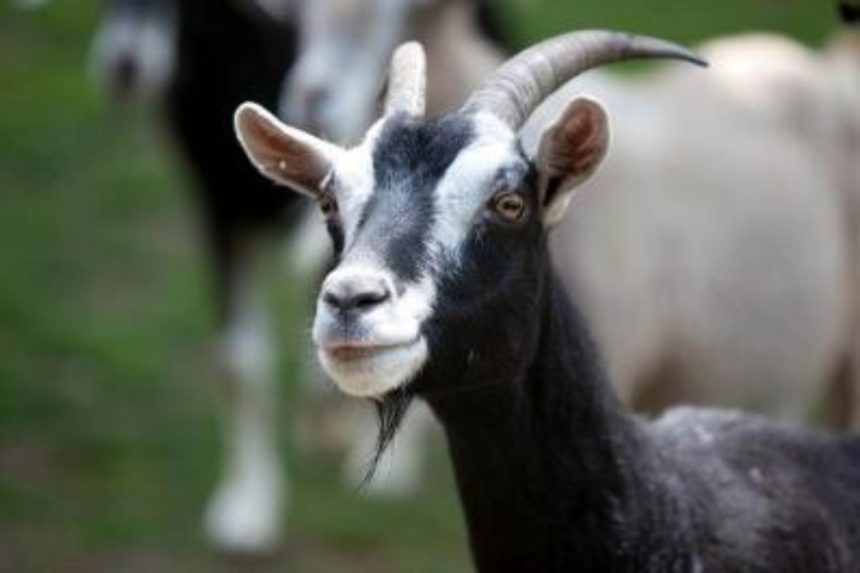PESHAWAR: Veterinary researchers have isolated and characterized Mycoplasma capricolum subsp Capripneumoniae (MCCP), which causes a severe and frequently deadly respiratory illness in goats known as ‘Contagious Caprine Pleuropneumonia’ (CCPP).
Faisal Ahmad (College of Veterinary Sciences Department Peshawar University), Hadayatullah Khan, Directorate of Livestock and Dairy Development, Dr. Farhan Anwar Khan, Associate Prof College of Veterinary Science Peshawar University, Bryan D. Carson (Sandia National Laboratories, Albuquerque USA, Umar Siddique, College of Veterinary Sciences, Ijaz Ahmad, College of Veterinary Science, Muhammed Khan, College of Veterinary Science.
“CCPP causes respiratory complications in goats and is listed by the World Organization of Animal Health as a noticeable animal disease, causing economic losses in terms of high morbidity (80%) and mortality (60%),” Dr. Farhan Anwar, Associate Professor College of Veterinary Sciences Peshawar University, explains.
Dr. Farhan told APP that there was very little information available on the molecular characterization of MccP strains found in Pakistan and that the study intended to isolate Mccp local strains for the development of diagnostics and vaccines.
“We successfully isolated a local strain of Mccp for the first time in Pakistan, which might be used to create diagnostics and control measures against infection in goats,” says Dr. Farhan as he shares the study’s findings.
Following the completion of the study, the researchers discovered a vaccine for Contagious Caprine Pleuropneumonia as well as a diagnostic kit, with the help of which the disease can be contained and dairy farmers can be protected from economic losses caused by the mortality of infected goats, he added.
According to Farhan, there are around 82 million goats in Pakistan, including approximately 20 million goats in Khyber Pakhtunkhwa.
The vaccine may also be used to cure wild ungulates such as Markhor, Pakistan’s national animal, ibexes, and deer, as they all belong to the goat family and died as a result of a lack of therapy and medicine, he explained.
The CCPP vaccination can also be used in neighboring Afghanistan, where a huge number of people are involved in the pastoral profession and rear ruminants in big numbers.
Dr. Farhan explained that 10 goat flocks were randomly selected and sampled in Gilgit Baltistan, Chitral, Swat, Buner, and Hazara from November 2017 to December 2018.
Each flock’s animals had clinical indications of respiratory distress, such as mucopurulent nasal discharge, cough, anorexia, debility, and so on. The flocks were raised on meadows and ranged in size from 300 to 2000 animals.
Nine hundred (900) samples were gathered from animals, including nasal swabs, tracheal swabs from naturally infected live goats displaying clinical symptoms, lungs tissue (200), and pleural fluid samples acquired from goats after necropsy.
In this investigation, the most prevalent clinical symptoms were productive cough, severe mucopurulent nasal discharges, fever, and deep abdominal respiration.
According to Dr. Farhan Anwar, Contagious Caprine Pleuropneumonia is recorded all over the world, although the disease is more prevalent in developing nations such as Asia and Africa, inflicting massive economic losses.
Sero-molecular prevalence of Mccp has been found in many regions of Pakistan, including Baluchistan, Punjab, and northern areas such as Khyber Pakhtunkhwa.
Mccp isolates were obtained from a greater number of goats in Gilgit Baltistan than in other locations in this investigation.
According to Farhan, the high frequency in the such region could be attributed to improper housing systems for large populations of goats (ranging from 300 to 2000 in a single flock), exposure to intense cold during winter (CCPP outbreak season), inadequate use of antimicrobials by farmers, and pastoralism.
READ MORE: Trump keeping nuke docs at house shocks former CIA official
The successful isolation of a locally virulent strain of Mccp from spontaneously infected goats cleared the path for whole-genome sequencing and further molecular study on Mccp virulence and antigenic components.
“Government institutes or private companies dealing with vaccine production and distribution should take advantage of this CCPP vaccine discovery and undertake efforts for its commercialization and availability for the benefit of the country’s dairy producers,” he urged.





